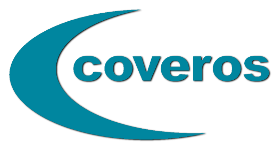
February 2021 marks the 20th anniversary of the signing of the Agile Manifesto. Follow along as we reflect and look to the future.
Speak with any of the “founding fathers” of agile and they will tell you that agile concepts are nothing new. Like most things, agile was created by standing on the shoulders of giants—taking concepts developed earlier and putting them together in unique ways.
If you are searching for agile knowledge and are interested in its history, I suggest you broaden your horizons. There are many books outside the current agile and DevOps literature that I would argue will have more impact on how you approach agile than reading another book on Scrum or SAFe. Some discuss the underpinnings of concepts we consider agile, while others are contemporary business books that present compelling ways to help people, teams, and organizations improve.
Here are three books I recommend.
The Goal, by Eliyahu M. Goldratt and Jeff Cox
Gene Kim, the lead author of The Phoenix Project, will tell you that his book is a modernized, IT version of The Goal. The book is written in a business novel format and describes how a struggling manufacturing organization applies the theory of constraints to turn its business around. Instead of focusing on optimizing each individual step in the process, the company looks at the entire manufacturing system and removes the largest constraint that is slowing down the entire process. Taking a systems view and removing constraints is a critical component of increasing agility in any software delivery process.
Goldratt followed up The Goal with Beyond the Goal, an audio series that further discusses his theory of constraints.
The Five Dysfunctions of a Team, by Patrick Lencioni
The Five Dysfunctions of a Team is also written in the form of a business novel and focuses on the five things Lencioni believes cause teams to struggle:
- Absence of trust: unwilling to be open with others on the team or management
- Fear of conflict: a preference for harmony even if there are underlying issues not being addressed
- Lack of commitment: not buying into what needs to be done
- Avoidance of accountability: not holding ourselves and the rest of our team accountable
- Inattention to results: a “me first” attitude instead of focusing on team success
The book discusses ways to address these dysfunctions through more effective communication, collaboration, and frequent conversations.
Out of the Crisis, by W. Edwards Deming
Many point to Deming’s work as an early influence on agile and DevOps principles. Out of the Crisis discusses his views on corporate management and how organizations need to transform their management approach to be successful in the future.
His 14 Points for Management are the key principles he believes management must follow to transform an organization, including continuous improvement, leadership over management, driving out fear, and breaking down barriers between groups. It should be clear how this influenced our modern agile movement.
Originally posted on TechWell Insights



